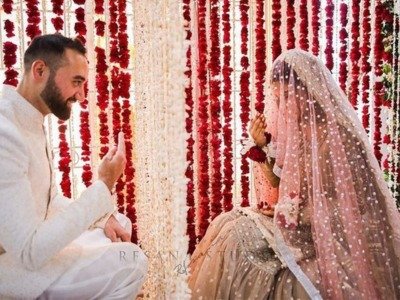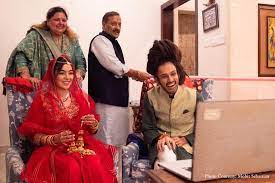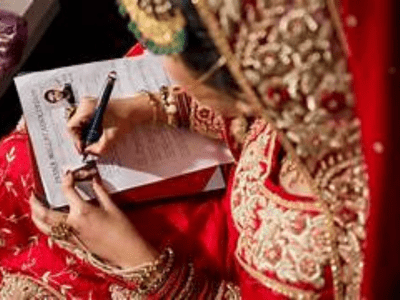Find The Perfect Nikah Mutah Service in Pakistan
Court Marriage & Civil Marriage Services in Pakistan-Karachi, Islamabad, Rawalpindi & Lahore
Legal Aspects of Nikah Mutah: Ensuring a Valid Contract in Pakistan
The legal side of Nikah Mutah in Pakistan is crucial to ensure your marriage contract is valid. Nikah Mutah, a temporary marriage practiced by some Islamic sects, is significant for many people. To make this process easier, our Nikah Mutah service is here to help. We offer expert guidance to ensure all legal aspects of your Nikah Mutah contract are correctly handled. With years of experience handling Nikah Mutah contracts, our dedicated team ensures your union follows Islamic principles and Pakistani legal requirements, ensuring the validity and legality of your Nikah Mutah.
Definition and History of Nikah Mutah
Mut’at-an-Nisa (women’s Mut’ah) was conducted during the time of the Prophet of God and even after his death – even during the time of the first Caliph, according to Shia and Sunni historical sources. This marriage style was practiced even under the caliphate of the second caliph, but following an occurrence during his caliphate, he ruled this type of marriage prohibited! And sentenced everyone who “performed” such a marriage after hearing this “order” to death. For example, three hadiths are mentioned from Ahl al-Sunnah hadith sources, the most renowned of which is Amr bin Harith, which is frequently quoted in the references.
The Nikah-e-Mut’ah: Opinions of Different Islamic Sects
Besides Ahl al-Sunnah, who consider Mut’ah invalid [42], examine the views of other Islamic sects on Mut’ah
- Abadiyyah claims that the verse Mut’ah has been abrogated. This is one of the common problems between Abaazi and Ahl al-Sunnah.
- As with the Sunnis, the Zaydias consider Mutah haram, and no Zaydia scholar supports Mutah marriage as legitimate.
- Mutah is not allowed by Ismailis, marriage is restricted to a permanent wife, and Yemen is the country of marriage.


Marriage /Nikah Services
Civil Registration Certificates
Central Aspects Of Mutah Marriage In Islam
Mahr In Mutah
The mention of Mahr in a broken contract is a condition for its validity, so it is invalid if it does not appear in the contract. If a woman marries, she becomes the owner of the Mahr. Still, her ownership of the entire Mahr is contingent on her obedience to the husband during the specified period of marriage and mu’tah. When the husband forgives his wife for the period before marriage, he is responsible for half the Mahr.
Mut’ah Period
If the period is not mentioned in this type of contract, popular opinion holds that the marriage becomes permanent (and the woman becomes the permanent wife of the man). It should be set so that it cannot be shortened or extended; it should be vague and not clean, such as a few months before pilgrims return from Mecca.
- In Mut’ah, there is no divorce, and the woman and man shall separate at the end of the period or if the man waives the period. [61] There is no need for a letter of acceptance from the woman.
It is forbidden to renew a Mut’ah contract with a woman or change it to a permanent contract before the end of the Mut’ah period.
Specific eligibility requirements and conditions must be met to proceed with a court marriage in Islamabad/Rawalpindi. Both parties must be of legal age (18 years or above) and provide valid identification documents. Neither party should have any existing marriages unless they are legally divorced or widowed. Consent from both families is also necessary, along with two witnesses present during the court appearance. These conditions ensure that the marriage process adheres to legal guidelines and ensures the validity of the union.
Iddat Duration In Mutah
When a woman’s Mutah period is over, or a man forgives the period, or if she is not pregnant, or if she doesn’t menstruate when she is of the age of menstruation, she observes Idda for 45 days. There are two menstrual cycles, one and a half months or two periods of purity. The first mentioned saying (two periods) is well known, and if a woman is pregnant, the period from when she gives birth will be counted.
- In the famous saying, a non-pregnant woman will remain in Idda for four months after her husband dies; some believe she will spend half of them there. When a woman is pregnant, the period of death is the longest – until the child’s birth.

Cultural and Religious Context in Pakistan
Pakistan is a country deeply rooted in culture and religion. Islam plays a significant role in shaping societal norms and practices. The cultural context of Pakistan emphasizes the importance of family, marriage, and maintaining strong ties within the community. Religion, particularly Islam, guides individuals’ beliefs and practices, including their approach to marriage contracts like Nikah Mutah. Understanding this cultural and religious context is crucial when discussing the legal aspects of Nikah Mutah in Pakistan.
Legal Requirements for Nikah Mutah
Before entering into a Nikah Mutah contract in Pakistan, it is important to understand the legal requirements involved. The contract must be voluntary and consensual between both parties, with transparent terms and conditions agreed upon. It should also comply with Sharia law and adhere to the regulations set forth by the Pakistani legal framework. Ensuring these requirements are met will help ensure that the Nikah Mutah contract is valid and legally binding.
Islamic Perspectives and Sharia Compliance
Islam, being the foundation of Nikah Mutah, holds utmost importance in ensuring its compliance with Sharia law. Islamic perspectives emphasize the need for a valid contract and mutual consent between the parties involved. Compliance with Sharia principles such as honesty, fairness, and fulfilling contractual obligations is crucial to upholding the sanctity of Nikah Mutah. By adhering to these principles, individuals can ensure that their union is recognized as valid within an Islamic framework.
Pakistani Legal Framework and Regulations
The Pakistani legal framework and regulations play a crucial role in ensuring the validity of Nikah Mutah contracts. These laws provide guidelines and requirements that must be followed to ensure the contract is legally binding. Compliance with these regulations is essential to avoid any legal complications or challenges in the future. Understanding and adhering to the Pakistani legal framework is vital for a successful Nikah Mutah contract.
Validity and Documentation
Ensuring a valid contract is crucial regarding Nikah Mutah in Pakistan. To make the union lawful, specific legal requirements must be met. This includes adherence to Islamic perspectives and Sharia compliance and complying with the Pakistani legal framework and regulations. Proper documentation plays a vital role in establishing the validity of a Nikah Mutah contract. By fulfilling these requirements, couples can ensure that their marriage is legally recognized and protected by law.

Required Documents for Nikah Mutah
When contracting a Nikah Mutah, certain documents need to be in place. These include the Nikahnama (marriage contract), both parties’ identity proof, and witnesses’ identification cards. The bride’s guardian must also provide consent, and her birth certificate is also required. Ensuring all necessary documents are prepared and presented accurately is crucial for a valid Nikah Mutah contract.
Validity Criteria and Compliance Checks
Specific criteria and compliance checks must be met regarding the validity of a Nikah Mutah contract in Pakistan. These requirements ensure the contract is legally binding and recognized by Islamic and Pakistani legal frameworks. From verifying the age and consent of the individuals involved to providing proper documentation, these checks play a crucial role in upholding the legality of Nikah Mutah.



Nikah Mutah Process
The process of contracting a Nikah Mutah involves several essential steps. First, both parties must express their intention to enter the temporary marriage contract. Then, they must agree on the terms and conditions, including duration and Mahr. This is followed by reciting the marriage formula before witnesses and obtaining their signatures on the contract document. The couple registers the contract with legal authorities for validity and recognition.
Steps Involved in Contracting Nikah Mutah
When contracting Nikah Mutah in Pakistan, several essential steps must be followed. First, both parties must consent and intend to enter the temporary marriage contract. Next, a mahr (Mahr) may be agreed upon and documented. Then, witnesses should be present during the recitation of the marriage formula. All necessary documentation should be completed and signed by both parties. These steps ensure the Nikah Mutah is properly contracted according to Islamic principles and Pakistani legal requirements.
Role of Witnesses and Legal Authorities
In contracting a Nikah Mutah, witnesses and legal authorities are crucial. Witnesses play a significant part in ensuring the validity and authenticity of the contract. They attest to both parties’ agreement, adding credibility to the arrangement. Additionally, legal authorities provide guidance and oversee the entire process to ensure compliance with Sharia law and Pakistani regulations. The involvement of witnesses and legal authorities ensures transparency and legitimacy in every Nikah Mutah contract.
Challenges and Misconceptions
Nikah Mutah can be challenging, with various misconceptions clouding people’s understanding. One common misconception is that it is a form of temporary marriage without any legal validity. However, Nikah Mutah follows specific legal requirements and holds legitimacy under Pakistani law. Let’s debunk these misconceptions and shed light on the challenges faced when entering a valid contract for Nikah Mutah in Pakistan.
Addressing Common Misconceptions about Nikah Mutah
Nikah Mutah, also known as temporary marriage, often faces various misconceptions. Many believe it is a form of legalized prostitution or an excuse for promiscuity. However, it is essential to understand that Nikah Mutah holds deep cultural and religious significance in specific communities. It is a valid contract under Islamic law with specific conditions and requirements. Addressing these misconceptions can foster better understanding and respect for this practice within its proper context.
Legal Challenges and Resolutions
Navigating the legal landscape surrounding Nikah Mutah in Pakistan can be complex. One of the main challenges is ensuring that the contract meets all legal requirements while adhering to Islamic principles. To overcome this, individuals must seek guidance from experts who can provide advice on documentation, compliance checks, and validity criteria. By addressing these challenges head-on, couples can ensure a legally sound Nikah Mutah contract that aligns with their religious beliefs and protects their rights under Pakistani law.
Nikah Mutah Services in Pakistan
When contracting a Nikah Mutah, it is essential to have reliable service providers who understand the legal requirements and cultural sensitivities. These professionals are crucial in facilitating the process and ensuring all necessary documentation is in place. Seeking legal consultation before entering a Nikah Mutah contract can help individuals navigate complexities. Let’s explore some case studies and real-life examples where these services have significantly impacted people’s lives.
Reliable Service Providers and Their Roles
The legal aspects of Nikah Mutah can be complex, so reliable service providers play a crucial role in ensuring a smooth process. These professionals are well-versed in the legal requirements and documentation for a valid contract. They guide couples through each step, providing expert advice and assistance to ensure compliance with Sharia law and Pakistani regulations. With their knowledge and experience, these service providers alleviate any uncertainties or challenges that may arise during the contracting process. Trustworthy guidance is essential when it comes to formalizing your Nikah Mutah agreement.
Importance of Legal Consultation
To ensure a valid and legally binding Nikah Mutah contract in Pakistan, it is essential to seek legal consultation. Consulting with a qualified legal professional specializing in Islamic family law can provide valuable guidance and expertise. Their knowledge of the relevant laws and regulations will help navigate any complexities or challenges, ensuring that the contract is appropriately executed and recognized by both religious and legal authorities. By seeking legal consultation, individuals can gain peace of mind, knowing they have taken all necessary steps to protect their rights and interests within the framework of Pakistani law.
Case Studies and Real-Life Examples
Real-life examples of successful Nikah Mutah contracts showcase the practical application and legal validity of this form of marriage in Pakistan. These case studies provide insights into how individuals have navigated the legal requirements, complied with Sharia principles, and obtained a valid contract. Understanding these real-life experiences can help potential couples make informed decisions about entering into a Nikah Mutah agreement.
Stories of Successful Nikah Mutah Contracts
Nikah Mutah contracts have brought joy and fulfillment to countless individuals in Pakistan. Stories of successful unions through this temporary marriage arrangement showcase its possibilities. Couples who entered Nikah Mutah found companionship, love, and a deep connection based on mutual understanding. These stories serve as a reminder that alternative forms of marriage can be just as meaningful and fulfilling as traditional unions.

Legal Implications and Outcomes
When it comes to Nikah Mutah, understanding the legal implications is crucial. A valid contract ensures that both parties are protected under the law in Pakistan. By following the necessary documentation and compliance criteria, couples can ensure their marriage is legally recognized. This provides various benefits, such as inheritance rights, financial security, and dispute protection. Understanding these legal aspects is essential for a successful and binding Nikah Mutah contract in Pakistan.
Frequently Asked Questions
Have questions about Nikah Mutah? We’ve got answers! People often have some common queries regarding this unique form of marriage in Pakistan. From the legal requirements to societal impact, we cover it all. Read on to better understand this practice and debunk any misconceptions you may have had.
Common Queries Regarding Nikah Mutah
What is the legal status of Nikah Mutah in Pakistan? Does the government recognize it? These are common questions that arise when discussing this unique form of marriage. Many individuals wonder about the validity and documentation requirements for Nikah Mutah contracts. Additionally, people often inquire about the role of witnesses and legal authorities in ensuring its legality. Let’s delve into these queries to shed some light on this lesser-known aspect of Pakistani law and culture surrounding matrimonial unions.
Cultural and Social Impact
The practice of Nikah Mutah in Pakistan has evolved, leading to varied cultural and social impacts. While some view it as a legitimate temporary marriage within Islamic guidelines, others perceive it as controversial or taboo. The acceptance and understanding of Nikah Mutah vary across different regions and communities within the country. These diverse perspectives contribute to ongoing discussions about its role in modern Pakistani society without a definitive consensus emerging.
Nikah Mutah in Modern Pakistani Society
In modern Pakistani society, the practice of Nikah Mutah continues to be debated and discussed. While some view it as an essential aspect of religious freedom and personal choice, others may see it as a controversial or misunderstood concept. The acceptance and perception of Nikah Mutah vary among individuals, reflecting Pakistan’s diverse cultural and social fabric. It is essential to understand these complexities when examining its role within contemporary society.
Societal Perceptions and Acceptance
People in Pakistan have different views on Nikah Mutah, a temporary marriage rooted in Islamic tradition. Some accept it, while others may not fully understand or have reservations about it. At Qanoon House, we aim to help you navigate this complexity. We aim to guide and assist those seeking to contract Nikah Mutah while ensuring it complies with Islamic principles and Pakistani legal requirements. We want to make the process smooth and acceptable to everyone involved in the marriage.
About Our Company (Qanoon House)
At Qanoon House, we are your trusted destination for Nikah Mutah services in Pakistan. Our commitment to facilitating Nikah ceremonies is unmatched, serving major cities like Karachi, Islamabad, Lahore, and Rawalpindi. With a team of experienced professionals, we ensure your Nikah Mutah process is smooth and seamless. Our dedication to providing legal assistance in Nikah Mutah matters is a testament to our expertise and customer-focused approach. Trust us to be your reliable partner in this significant journey as we work tirelessly to make your Nikah Mutah experience hassle-free and legally compliant.
Years of Expertise in Nikah Khawan Services
With a wealth of experience providing Nikah Mutah services, we pride ourselves on being your trusted choice for Nikah ceremonies. Our years of expertise have solidified our reputation as the best Nikah Mutah service provider in major cities like Karachi, Islamabad, Lahore, and Rawalpindi. We understand the significance of this sacred union and are committed to ensuring your Nikah Mutah process is seamless, memorable, and in compliance with all legal requirements. Trust us to be your reliable partner in this important journey of matrimony.
To contact us for exceptional Nikah Khawan services:
Phone: +92 316 1119655
Email: info@qanoonhouse.com